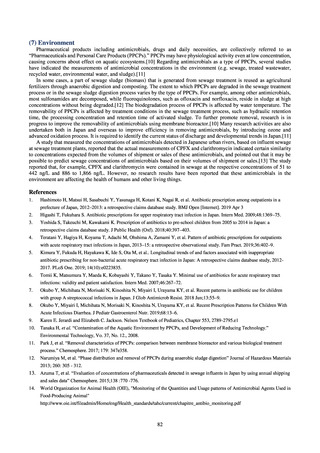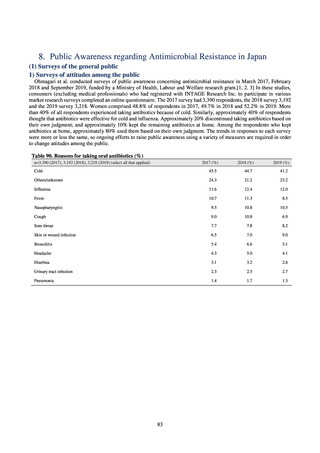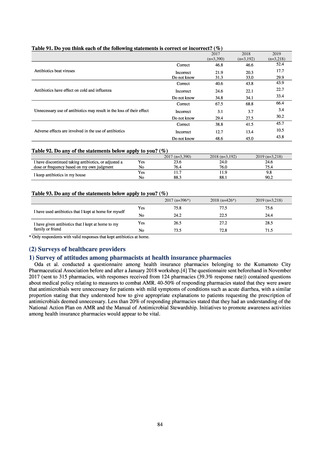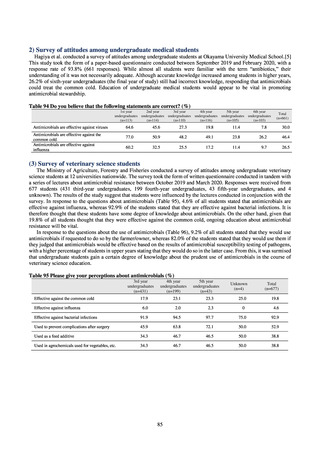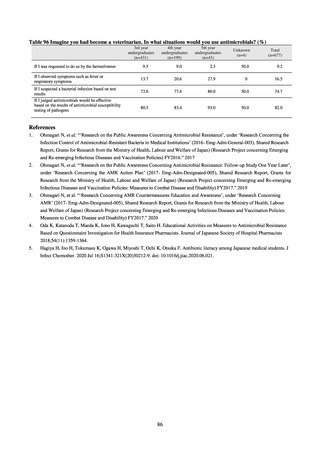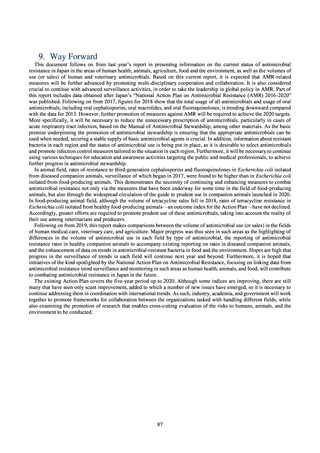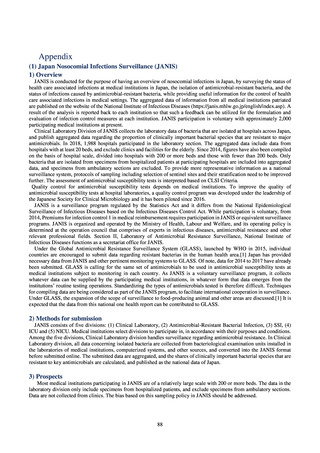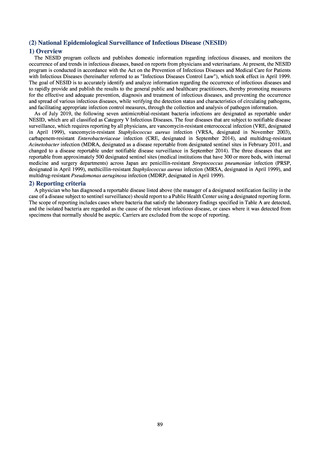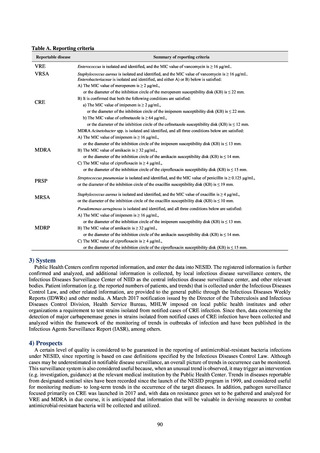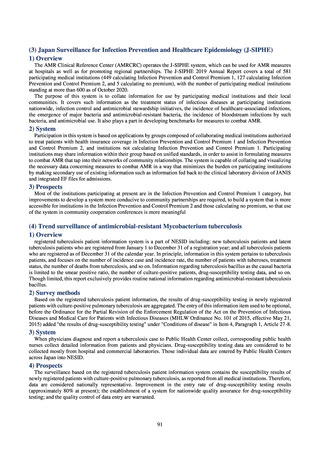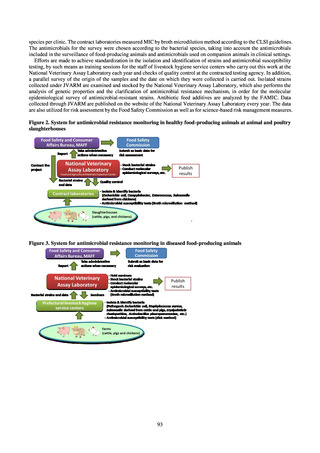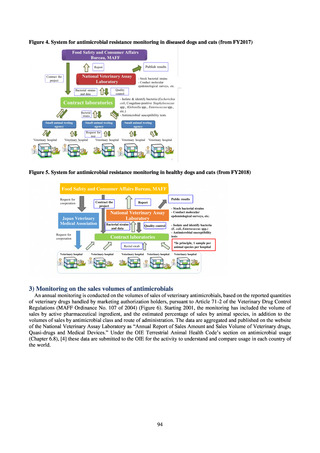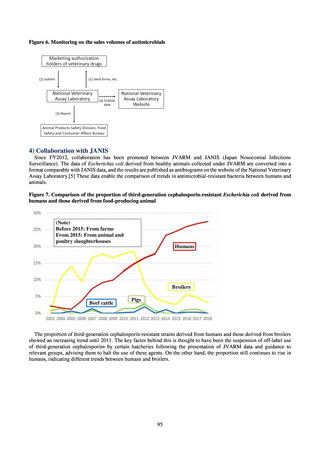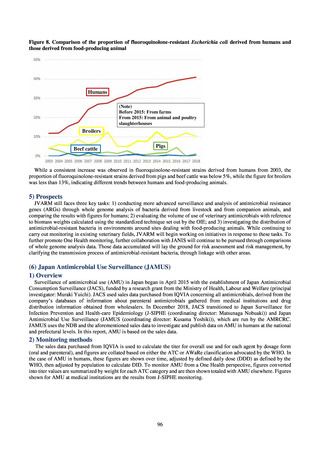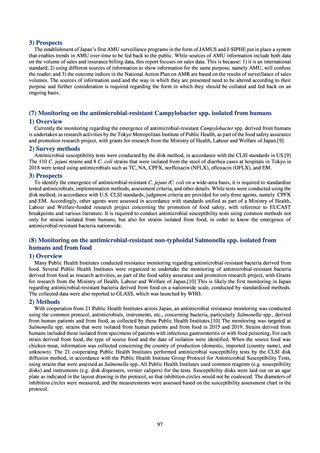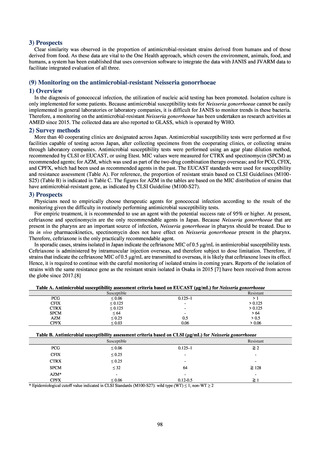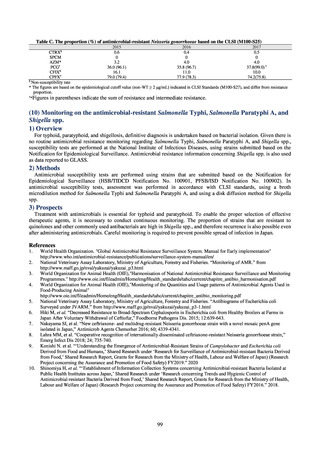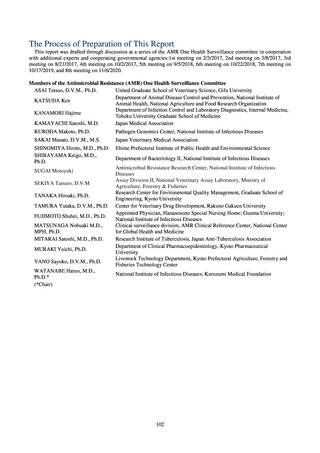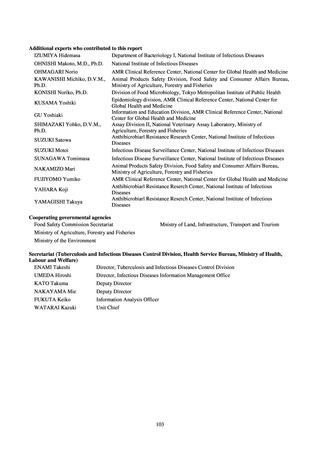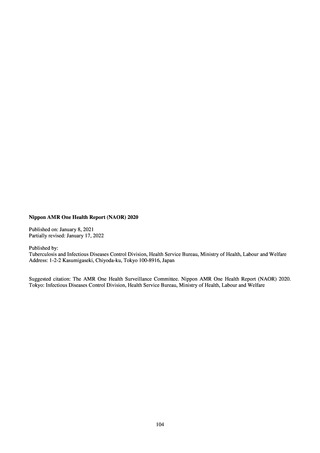よむ、つかう、まなぶ。
【参考資料3】【英版R4.1.17】Nippon AMR One Health Report (NAOR) 2020 (86 ページ)
出典
| 公開元URL | https://www.mhlw.go.jp/stf/newpage_23261.html |
| 出典情報 | 国際的に脅威となる感染症対策関係閣僚会議 薬剤耐性ワンヘルス動向調査検討会(第9回 1/17)《厚生労働省》 |
ページ画像
ダウンロードした画像を利用する際は「出典情報」を明記してください。
低解像度画像をダウンロード
プレーンテキスト
資料テキストはコンピュータによる自動処理で生成されており、完全に資料と一致しない場合があります。
テキストをコピーしてご利用いただく際は資料と付け合わせてご確認ください。
2) Survey of attitudes among undergraduate medical students
Hagiya et al. conducted a survey of attitudes among undergraduate students at Okayama University Medical School.[5]
This study took the form of a paper-based questionnaire conducted between September 2019 and February 2020, with a
response rate of 93.8% (661 responses). While almost all students were familiar with the term “antibiotics,” their
understanding of it was not necessarily adequate. Although accurate knowledge increased among students in higher years,
26.2% of sixth-year undergraduates (the final year of study) still had incorrect knowledge, responding that antimicrobials
could treat the common cold. Education of undergraduate medical students would appear to be vital in promoting
antimicrobial stewardship.
Table 94 Do you believe that the following statements are correct? (%)
1st year
2nd year
undergraduates undergraduates
(n=113)
(n=114)
Antimicrobials are effective against viruses
Antimicrobials are effective against the
common cold
Antimicrobials are effective against
influenza
3rd year
4th year
5th year
undergraduates undergraduates undergraduates
(n=110)
(n=116)
(n=105)
6th year
undergraduates
(n=103)
Total
(n=661)
64.6
45.6
27.3
19.8
11.4
7.8
30.0
77.0
50.9
48.2
49.1
23.8
26.2
46.4
60.2
32.5
25.5
17.2
11.4
9.7
26.5
(3) Survey of veterinary science students
The Ministry of Agriculture, Forestry and Fisheries conducted a survey of attitudes among undergraduate veterinary
science students at 12 universities nationwide. The survey took the form of written questionnaire conducted in tandem with
a series of lectures about antimicrobial resistance between October 2019 and March 2020. Responses were received from
677 students (431 third-year undergraduates, 199 fourth-year undergraduates, 43 fifth-year undergraduates, and 4
unknown). The results of the study suggest that students were influenced by the lectures conducted in conjunction with the
survey. In response to the questions about antimicrobials (Table 95), 4.6% of all students stated that antimicrobials are
effective against influenza, whereas 92.9% of the students stated that they are effective against bacterial infections. It is
therefore thought that these students have some degree of knowledge about antimicrobials. On the other hand, given that
19.8% of all students thought that they were effective against the common cold, ongoing education about antimicrobial
resistance will be vital.
In response to the questions about the use of antimicrobials (Table 96), 9.2% of all students stated that they would use
antimicrobials if requested to do so by the farmer/owner, whereas 82.0% of the students stated that they would use them if
they judged that antimicrobials would be effective based on the results of antimicrobial susceptibility testing of pathogens,
with a higher percentage of students in upper years stating that they would do so in the latter case. From this, it was surmised
that undergraduate students gain a certain degree of knowledge about the prudent use of antimicrobials in the course of
veterinary science education.
Table 95 Please give your perceptions about antimicrobials (%)
3rd year
undergraduates
(n=431)
Effective against the common cold
4th year
undergraduates
(n=199)
5th year
undergraduates
(n=43)
Unknown
(n=4)
Total
(n=677)
17.9
23.1
23.3
25.0
19.8
6.0
2.0
2.3
0
4.6
Effective against bacterial infections
91.9
94.5
97.7
75.0
92.9
Used to prevent complications after surgery
45.9
63.8
72.1
50.0
52.9
Used as a feed additive
34.3
46.7
46.5
50.0
38.8
Used in agrochemicals used for vegetables, etc.
34.3
46.7
46.5
50.0
38.8
Effective against influenza
85
Hagiya et al. conducted a survey of attitudes among undergraduate students at Okayama University Medical School.[5]
This study took the form of a paper-based questionnaire conducted between September 2019 and February 2020, with a
response rate of 93.8% (661 responses). While almost all students were familiar with the term “antibiotics,” their
understanding of it was not necessarily adequate. Although accurate knowledge increased among students in higher years,
26.2% of sixth-year undergraduates (the final year of study) still had incorrect knowledge, responding that antimicrobials
could treat the common cold. Education of undergraduate medical students would appear to be vital in promoting
antimicrobial stewardship.
Table 94 Do you believe that the following statements are correct? (%)
1st year
2nd year
undergraduates undergraduates
(n=113)
(n=114)
Antimicrobials are effective against viruses
Antimicrobials are effective against the
common cold
Antimicrobials are effective against
influenza
3rd year
4th year
5th year
undergraduates undergraduates undergraduates
(n=110)
(n=116)
(n=105)
6th year
undergraduates
(n=103)
Total
(n=661)
64.6
45.6
27.3
19.8
11.4
7.8
30.0
77.0
50.9
48.2
49.1
23.8
26.2
46.4
60.2
32.5
25.5
17.2
11.4
9.7
26.5
(3) Survey of veterinary science students
The Ministry of Agriculture, Forestry and Fisheries conducted a survey of attitudes among undergraduate veterinary
science students at 12 universities nationwide. The survey took the form of written questionnaire conducted in tandem with
a series of lectures about antimicrobial resistance between October 2019 and March 2020. Responses were received from
677 students (431 third-year undergraduates, 199 fourth-year undergraduates, 43 fifth-year undergraduates, and 4
unknown). The results of the study suggest that students were influenced by the lectures conducted in conjunction with the
survey. In response to the questions about antimicrobials (Table 95), 4.6% of all students stated that antimicrobials are
effective against influenza, whereas 92.9% of the students stated that they are effective against bacterial infections. It is
therefore thought that these students have some degree of knowledge about antimicrobials. On the other hand, given that
19.8% of all students thought that they were effective against the common cold, ongoing education about antimicrobial
resistance will be vital.
In response to the questions about the use of antimicrobials (Table 96), 9.2% of all students stated that they would use
antimicrobials if requested to do so by the farmer/owner, whereas 82.0% of the students stated that they would use them if
they judged that antimicrobials would be effective based on the results of antimicrobial susceptibility testing of pathogens,
with a higher percentage of students in upper years stating that they would do so in the latter case. From this, it was surmised
that undergraduate students gain a certain degree of knowledge about the prudent use of antimicrobials in the course of
veterinary science education.
Table 95 Please give your perceptions about antimicrobials (%)
3rd year
undergraduates
(n=431)
Effective against the common cold
4th year
undergraduates
(n=199)
5th year
undergraduates
(n=43)
Unknown
(n=4)
Total
(n=677)
17.9
23.1
23.3
25.0
19.8
6.0
2.0
2.3
0
4.6
Effective against bacterial infections
91.9
94.5
97.7
75.0
92.9
Used to prevent complications after surgery
45.9
63.8
72.1
50.0
52.9
Used as a feed additive
34.3
46.7
46.5
50.0
38.8
Used in agrochemicals used for vegetables, etc.
34.3
46.7
46.5
50.0
38.8
Effective against influenza
85


















































































